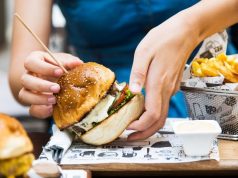Study in rats extends previous findings demonstrating positive effects
WEDNESDAY, March 9, 2016 (HealthDay News) — Moderate stress encourages male bonding, and prosocial behavior improves stress resiliency, according to an experimental study in rats published online Feb. 2 in Neuropsychopharmacology.
In a study involving Sprague Dawley rats, Sandra E. Muroy, from the University of California in Berkeley, and colleagues examined whether a moderate stressor (three hours of acute immobilization) impacts social support behaviors differently when experienced in a neutral versus threatening context (i.e., paired with predator odor).
The researchers found that moderate stress correlated with increased social support-seeking behavior in rat cagemates and enabled long-term sharing of a limited water resource, reduced aggression, and strongly defined dominance ranks. The positive behavioral effects of moderate stress were eliminated when the same stressor was experienced in the presence of predator odor. In a neutral, but not predator odor context, there was a significant increase in hypothalamic oxytocin, coincident with stress.
“Social interactions can buffer you against stress, but if a trauma is just too much and there is posttraumatic stress disorder, you actually withdraw from social interactions that can be supportive for you,” senior author Daniela Kaufer, Ph.D., a UC Berkeley associate professor of integrative biology and member of the Helen Wills Neuroscience Institute, said in a university news release. “This research suggests that this might be happening through changes in oxytocin; that in the context of life-threatening stress, you lose its effect and you see less prosocial behavior. This really aligns well with what you see with pathological effects of stress on humans.”
Several authors disclosed financial ties to the pharmaceutical and biotechnology industries.
Full Text (subscription or payment may be required)
Copyright © 2016 HealthDay. All rights reserved.








